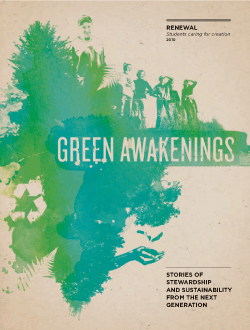The LACCD Sustainable Media Studio: Shooting A Green Tomorrow, Today
by Melinda Ann Farrell, Director, LACCD Sustainable Media
It’s Lights, Camera, Action at LACCD Sustainable Media, the student-led documentary studio of the Los Angeles Community College District (LACCD). Armed with high definition cameras, field recording equipment, big imaginations and one of the largest public sector green building programs in the country as their subject, the talented student auteurs of the LACCD are educating and entertaining their peers on the subject of sustainability and climate neutrality, using the art of documentary filmmaking.
Producing video sustainability stories “by students, for students,” the studio’s filmmakers are turning the camera’s lens on themselves and their colleges to showcase marquee building projects campus by campus and reveal the behind-the-scenes transformation of the Los Angeles Community College District through the voices of the students, faculty, board members, administrators, architects, construction firms and community members who all contributed to the effort. The studio’s original works are posted onlaccdbuildsgreen.org under the Student Video gallery as well as on our Vimeo channel.
- Read more about The LACCD Sustainable Media Studio: Shooting A Green Tomorrow, Today
- Add new comment


 I understand the important work that each of you perform for your institutions every day, and would like you to know that the Department of Education is a strong leader and partner in these efforts. We are developing a ‘Green Team’ to help facilitate environmental literacy efforts, and President Obama has placed resources in the 2011 education budget specifically to support environmental literacy.
I understand the important work that each of you perform for your institutions every day, and would like you to know that the Department of Education is a strong leader and partner in these efforts. We are developing a ‘Green Team’ to help facilitate environmental literacy efforts, and President Obama has placed resources in the 2011 education budget specifically to support environmental literacy.